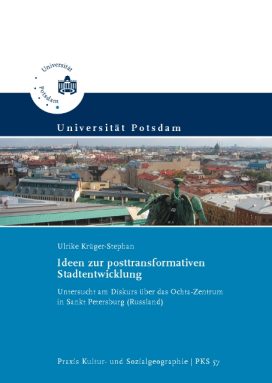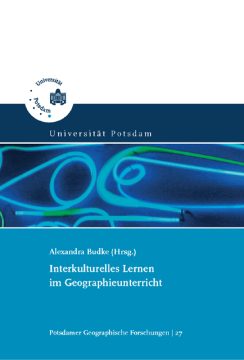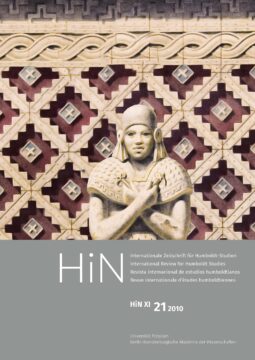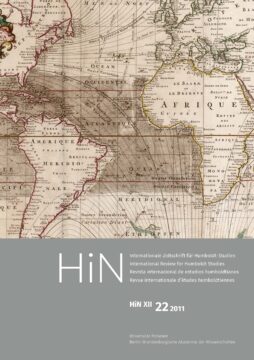Recent trends in the development of major Russian cities are raising questions about the end of post-socialist transformation. Post-transformative urban trends have become visible in the context of the planning and realization of iconic architectural projects. Their purpose is to symbolize a capacity for innovation and competitiveness. At the local level, however, they are subject to controversial debates, especially when challenging regional traditions of urban planning. The Okhta-Center, a business and cultural center with a skyscraper reaching a height of 400 m, serves as a good example. The Gazprom Group intended to build the complex at the edge of the historical city center of Saint Petersburg. During the height of the debate the project involved not only the citizens of Saint Petersburg, but also the leadership of the Russian Federation and UNESCO. Analyzing the discourse regarding the Okhta-Center therefore allows insights into current trends of urban development in Saint Petersburg as well as strategies of Russian domestic and foreign policies.
untersucht am Diskurs über das Ochta-Zentrum in Sankt Petersburg (Russland)
ISBN: 978-3-86956-224-7
159 pages
Release year 2013
Series: Praxis Kultur- und Sozialgeographie , 57
13,00 €
Non-taxable transaction according to § 1 (1) UStG/VAT Act in combination with § 2 (3) UStG/VAT Act a. F. Providing this service, the University of Potsdam does not constitute a Betrieb gewerblicher Art/Commercial Institution according to § 1 (1) No. 6 or § 4 KStG/Corporate Tax Act. If the legal characterization of our business is changed to a commercial institution subsequently, we reserve the right to invoice VAT additionally. zzgl. Versandkosten
Recent trends in the development of major Russian cities are raising questions about the end of post-socialist transformation. Post-transformative urban trends have become visible in the context of the planning and realization of iconic architectural projects. Their purpose is to symbolize a capacity for innovation and competitiveness. At the local level, however, they are subject to controversial debates, especially when challenging regional traditions of urban planning. The Okhta-Center, a business and cultural center with a skyscraper reaching a height of 400 m, serves as a good example. The Gazprom Group intended to build the complex at the edge of the historical city center of Saint Petersburg. During the height of the debate the project involved not only the citizens of Saint Petersburg, but also the leadership of the Russian Federation and UNESCO. Analyzing the discourse regarding the Okhta-Center therefore allows insights into current trends of urban development in Saint Petersburg as well as strategies of Russian domestic and foreign policies.
Recommended Books
-
 2008
2008Interkulturelles Lernen im Geographieunterricht
9,00 €Non-taxable transaction according to § 1 (1) UStG/VAT Act in combination with § 2 (3) UStG/VAT Act a. F. Providing this service, the University of Potsdam does not constitute a Betrieb gewerblicher Art/Commercial Institution according to § 1 (1) No. 6 or § 4 KStG/Corporate Tax Act. If the legal characterization of our business is changed to a commercial institution subsequently, we reserve the right to invoice VAT additionally.
zzgl. Versandkosten
Add to cart -
 2019
2019Ottmar Ette, Carolina Depetris, Ilse Jahn, Eberhard Knobloch, Miguel Ángel Puig-Samper Mulero, Sandra Rebok, Georg Schifko, Carolin Schulz, Ingo Schwarz, Antonio Carlos Vitte, Romy Werther, Roberison Wittgenstein Dias da Silveira
Alexander von Humboldt im Netz ; 11 (2010) 21
11,50 €Non-taxable transaction according to § 1 (1) UStG/VAT Act in combination with § 2 (3) UStG/VAT Act a. F. Providing this service, the University of Potsdam does not constitute a Betrieb gewerblicher Art/Commercial Institution according to § 1 (1) No. 6 or § 4 KStG/Corporate Tax Act. If the legal characterization of our business is changed to a commercial institution subsequently, we reserve the right to invoice VAT additionally.
zzgl. Versandkosten
Add to cart -
 2019
2019Ottmar Ette, Horst Fiedler, Teodoro Hampe Martínez, Anne Jobst, Eberhard Knobloch, Jorge Ortiz Sotelo, José Ángel Rodriguez, Ursula Thiemer-Sachse
Alexander von Humboldt im Netz ; 8 (2007) 15
13,00 €Non-taxable transaction according to § 1 (1) UStG/VAT Act in combination with § 2 (3) UStG/VAT Act a. F. Providing this service, the University of Potsdam does not constitute a Betrieb gewerblicher Art/Commercial Institution according to § 1 (1) No. 6 or § 4 KStG/Corporate Tax Act. If the legal characterization of our business is changed to a commercial institution subsequently, we reserve the right to invoice VAT additionally.
zzgl. Versandkosten
Add to cart -
 2019
2019Ottmar Ette, Reinhard Andress, Michael Anisch, Gilles Bancarel, Kurt-R. Biermann, Eberhard Knobloch, Karin Reich, Elena Roussanova, Ingo Schwarz
Alexander von Humboldt im Netz ; 12 (2011) 22
13,00 €Non-taxable transaction according to § 1 (1) UStG/VAT Act in combination with § 2 (3) UStG/VAT Act a. F. Providing this service, the University of Potsdam does not constitute a Betrieb gewerblicher Art/Commercial Institution according to § 1 (1) No. 6 or § 4 KStG/Corporate Tax Act. If the legal characterization of our business is changed to a commercial institution subsequently, we reserve the right to invoice VAT additionally.
zzgl. Versandkosten
Add to cart
Publisher Info
Contact
Potsdam University Library
University Press
Am Neuen Palais 10
14476 Potsdam
Germany
verlag@uni-potsdam.de
0331 977-2094
0331 977-2292





